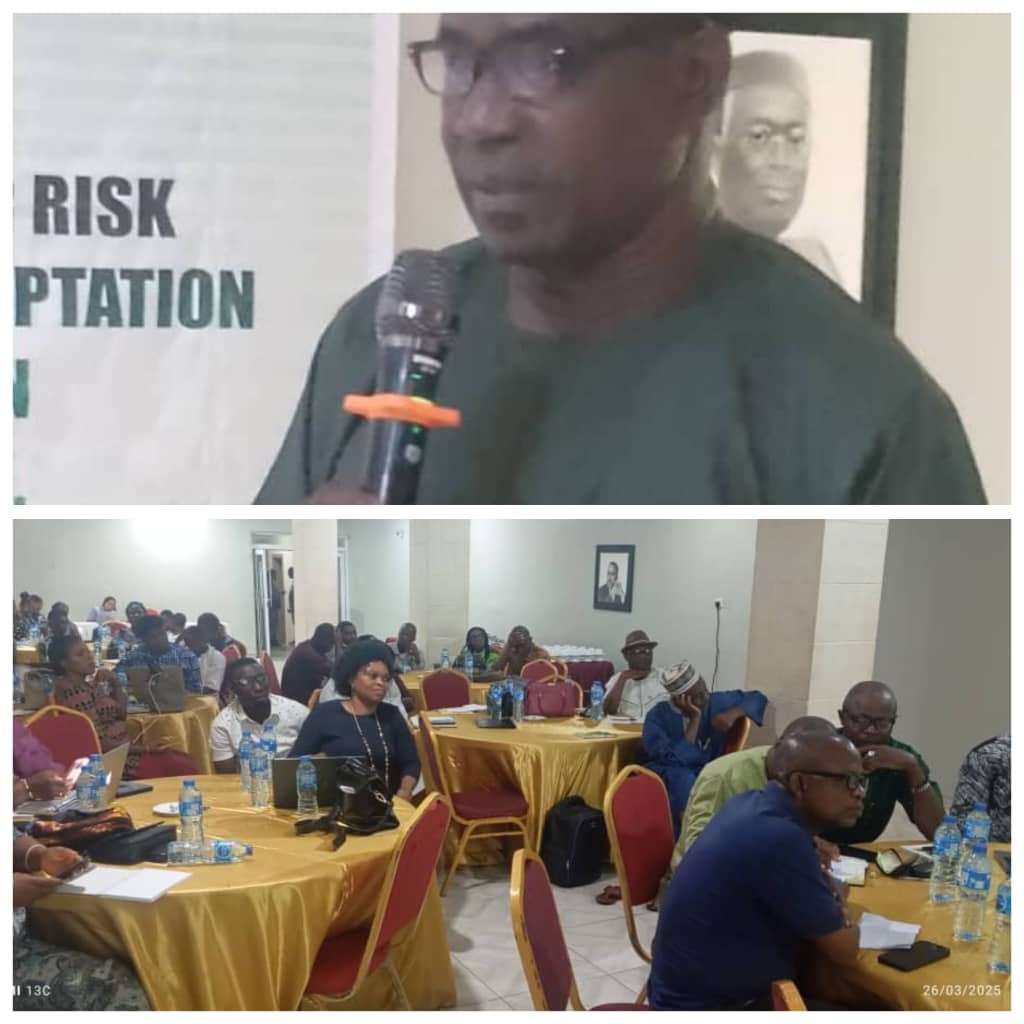By Israel Bulus, Kaduna
The Federal Ministry of Environment has organized a workshop on Disaster Risk Management and Climate Change Adaptation for vulnerable communities in Nigeria’s South-West geopolitical zone.
The event, which brought together representatives from all six states in the region, aimed to strengthen resilience against climate-related threats.
Delivering the keynote address, the Ministry’s Permanent Secretary, Mahmud Adam Kambari, emphasized the growing impact of climate change on national development.
He highlighted challenges such as desertification advancing southward and the potential submergence of Nigeria’s 853-kilometer coastline along the Atlantic Ocean.
“Climate change has become a critical issue, not only for its global implications but also for the threats it poses to our national development,” he stated. “Nigeria recognizes the urgent need to embed climate change strategies within its national framework to ensure sustainable development.”
Mahmud further outlined Nigeria’s commitment to international climate agreements, including the Kyoto Protocol and the Paris Agreement.
He stressed that effective mitigation and adaptation measures are essential for protecting livelihoods, economic stability, and public health.
” The Federal Government has implemented various policies, legislative measures, and institutional capacity-building programs to address climate change challenges. These efforts include active participation in global climate negotiations, fostering partnerships with non-governmental organizations, and securing funding for climate initiatives.
“As part of our strategic response, we will continue working with individuals, communities, businesses, and international partners to raise awareness and promote climate action,” he added.
Elanza News reports that, the workshop focused on strengthening disaster resilience in vulnerable communities by enhancing their capacity to prepare for, respond to, and recover from natural and man-made disasters.
” The Ministry of Environment reaffirmed its commitment to supporting research, enforcing regulations, and providing policy direction to combat climate change.
He urged state governments to align with the federal vision, emphasizing that effective collaboration is crucial for achieving climate resilience.
“If we achieve the objectives outlined in this workshop, climate change will become a priority issue in Nigeria’s policy landscape,” he concluded.
The workshop participants were encouraged to share knowledge and propose innovative solutions to help the government take proactive measures in environmental management.











